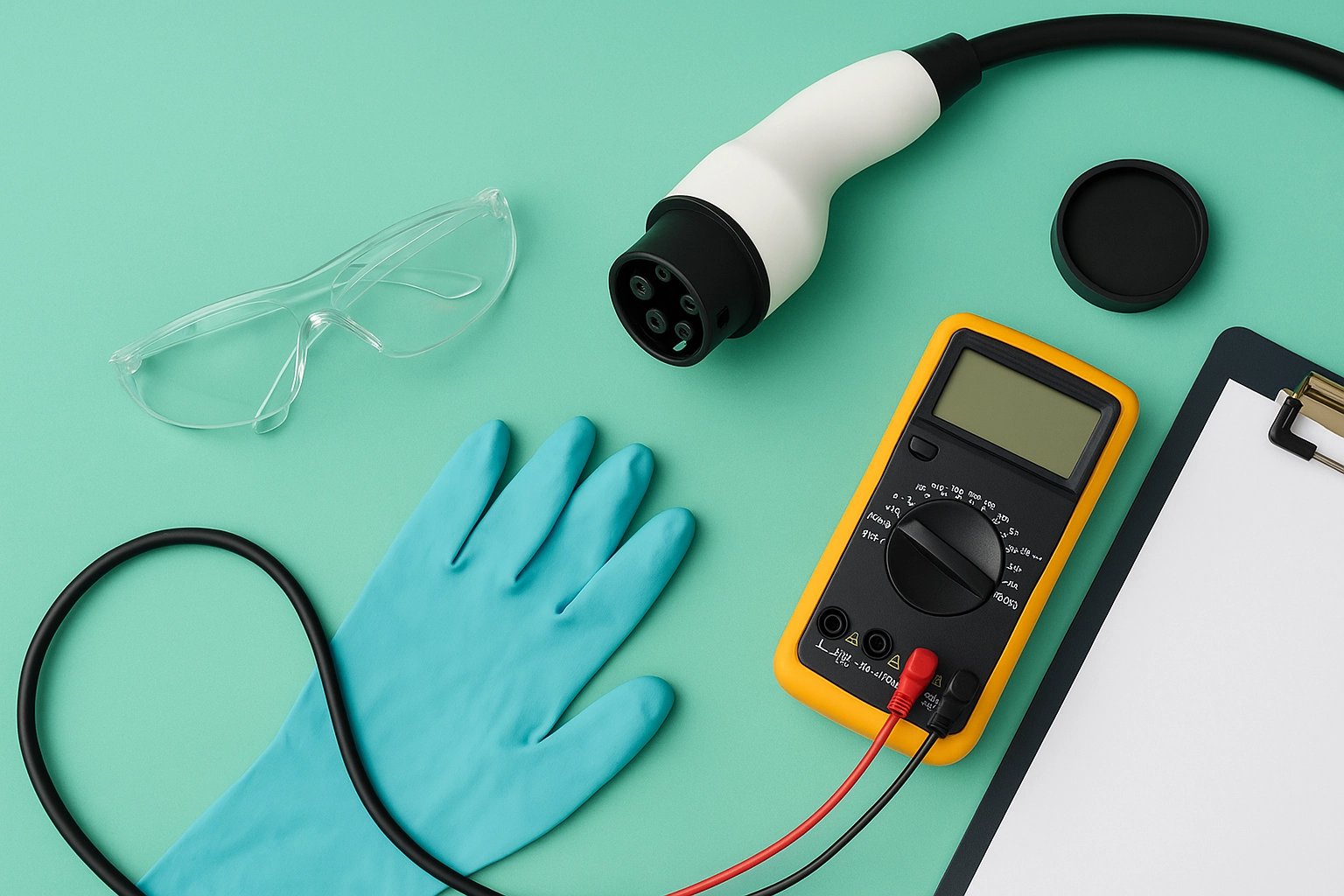IEEE 1547 Interconnection EV Charger Performance Test
The IEEE Standard 1547 defines requirements for interconnecting distributed resources with utility power systems. This includes the performance and safety standards for renewable energy sources, electric vehicles (EVs), and charging equipment. As the automotive industry transitions towards electrification, ensuring that EV chargers comply with these standards is crucial for safe integration into existing electrical grids.
The IEEE 1547 interconnection test evaluates various aspects of an EV charger’s performance such as its ability to operate within specified voltage and frequency ranges, fault ride-through capabilities, and power factor correction. These tests are critical because they ensure that the charging equipment does not destabilize or overload the grid during normal operation.
The test procedure involves connecting the EV charger to a simulated utility system under controlled conditions. The charger is subjected to various stress scenarios including voltage fluctuations, frequency variations, and short circuits. During these tests, parameters such as reactive power compensation, harmonic distortion, and real-time communication with the grid are closely monitored.
The IEEE 1547 standard emphasizes the importance of bidirectional power flow in EV chargers. This means that not only does the charger supply power to the vehicle but it can also return energy back into the grid during periods when the vehicle is not charging. This feature enhances grid stability and efficiency, making it an essential requirement for modern electric vehicles.
The testing process involves detailed preparation of both the equipment and the environment in which the tests will be conducted. The charger must meet specific technical requirements set forth by IEEE 1547, including but not limited to:
- Capacitive and inductive reactive power compensation
- Harmonic distortion control within specified limits
- Proper handling of overcurrent conditions
- Communication with the utility grid for real-time data exchange
The results of these tests provide critical insights into the charger's ability to operate safely and efficiently in a variety of grid conditions. Compliance with IEEE 1547 ensures that EV chargers contribute positively to overall grid stability, reducing the risk of brownouts or blackouts.
By adhering to this standard, manufacturers can demonstrate their commitment to safety, reliability, and environmental responsibility. This is particularly important as governments around the world implement policies aimed at reducing carbon emissions and promoting sustainable energy use.
Why It Matters
The IEEE 1547 standard plays a pivotal role in ensuring that EV chargers are safe, efficient, and reliable. Compliance with this standard is mandatory for any charger that wishes to connect to public utility grids. The interconnection test not only protects the grid but also ensures that consumers receive high-quality service from their charging equipment.
The increasing popularity of electric vehicles has led to a surge in demand for charging infrastructure. As more people adopt EVs, it becomes essential to have robust testing protocols in place to ensure that chargers meet stringent performance criteria. The IEEE 1547 test is one such protocol that helps maintain the integrity of the electrical grid.
The standard also promotes innovation by encouraging manufacturers to develop chargers with advanced features such as smart charging and demand response capabilities. These features allow for better management of energy resources, contributing to a more sustainable future.
Furthermore, compliance with IEEE 1547 can provide significant regulatory benefits. Many jurisdictions offer incentives or rebates for businesses that adopt green technologies like EV chargers. By ensuring that their products meet the required standards, manufacturers can qualify for these financial rewards and enhance their market competitiveness.
Customer Impact and Satisfaction
- Enhanced Safety: Customers benefit from a safer electrical grid as EV chargers that pass the IEEE 1547 test are less likely to cause disruptions or failures.
- Better Performance: The testing ensures that customers receive high-quality service, with chargers capable of operating efficiently under various conditions.
- Eco-Friendly Solutions: Compliance with the standard promotes the use of renewable energy sources, contributing to a more sustainable environment.
The test also helps in building trust between customers and manufacturers. When consumers know that their chargers meet rigorous international standards, they are more likely to have confidence in the products they purchase. This leads to higher customer satisfaction and loyalty.
Competitive Advantage and Market Impact
The IEEE 1547 interconnection test provides a competitive edge for manufacturers by ensuring that their products meet or exceed the highest industry standards. This can be a deciding factor in winning contracts and gaining market share.
By offering chargers that comply with this standard, businesses can differentiate themselves from competitors who may not adhere to such rigorous testing protocols. This allows them to command premium prices and establish themselves as leaders in the EV charging industry.
The demand for green technologies is growing rapidly, driven by increasing environmental awareness and government incentives. Companies that demonstrate their commitment to sustainability through compliance with IEEE 1547 are likely to attract more customers and investors focused on eco-friendly solutions.
Moreover, the test results can be used as marketing tools to promote products effectively. Potential buyers can easily verify the quality of a product by checking its compliance status against recognized international standards like IEEE 1547.





